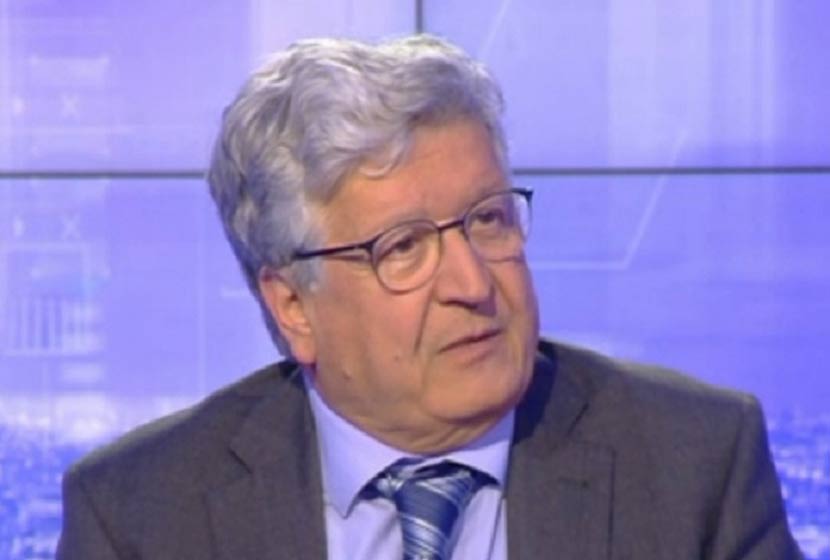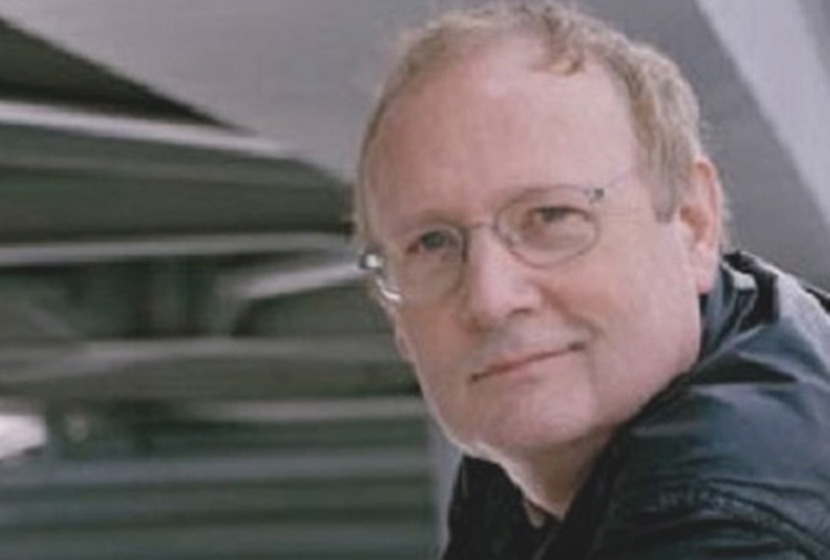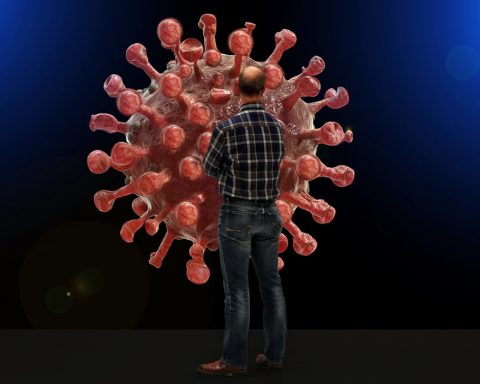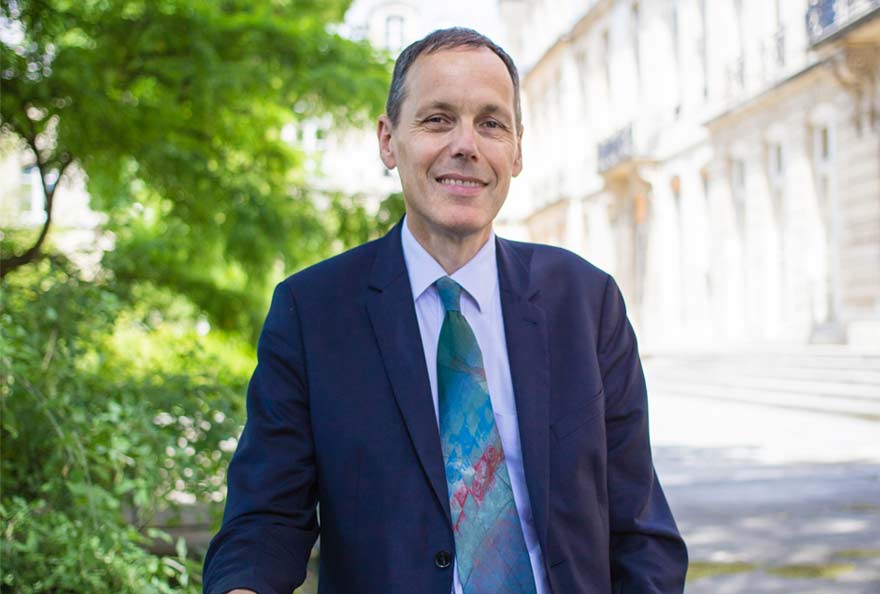Free conversation at the National Assembly on the financing of the prototype or technological demonstrator of industrial inventions and the highlighting of the Industrial Technical Centres (CTI) with Mr. François Brottes, deputy of Isère President of the Economic Affairs Committee at the National Assembly
At UP' Magazine, we do journalism differently. We are all specialists in innovation, practitioners of innovation and authors of innovations, and we develop free and solidarity-based specialized information.
I would like to offer you a little free conversation about equity in innovation, depending on whether you are an independent innovation carrier, that is to say an independent author, or a large group with an R & D policy and the means to do so.
Our interview takes place in the context where the terms and conditions of the Research Tax Credit have just been modified.
![]() "Mr. President, how do you define innovation policy in the Economic Affairs Committee of the National Assembly: is it a small subject among others or a subject that has a relative priority?
"Mr. President, how do you define innovation policy in the Economic Affairs Committee of the National Assembly: is it a small subject among others or a subject that has a relative priority?
 François Brottes :
François Brottes :
"It is a huge subject, since innovation means taking into account the evolution of market needs, the evolution of lifestyles, the evolution of exchanges... Innovation must be at the heart of a constant concern of the legislator as well as industrialists and all economic players. It is the knot that makes us in or out of the race, therefore on the question of patents, on the question of certifications, on the question of innovation platforms, on the question of Research Tax Credit, on the question of the link between public research and private companies. We are constantly working on this, because innovation is just vital.
![]() Have you ever discussed in the Commission the issue of the disparity in access to funding for the prototype, or the so-called industrial technology demonstrator? On the one hand, there are the lone carriers of patented innovation, but sometimes with a potential of more than EUR 1 billion in new markets, and on the other, there are the large groups.
Have you ever discussed in the Commission the issue of the disparity in access to funding for the prototype, or the so-called industrial technology demonstrator? On the one hand, there are the lone carriers of patented innovation, but sometimes with a potential of more than EUR 1 billion in new markets, and on the other, there are the large groups.
This passage from invention to innovation, i.e. the financing of the technological demonstrator: there is a flaw in the French system, which means that we cannot manage to move from phase I of design, which we can finance alone, to the financing and implementation phase of the technological demonstrator. It is a phase in which the mere creator encounters immense difficulties, because of this issue of financing, and that of technological hosting.
FB It is also a constant debate. I continually receive letters from people who have come up with a great idea, a system that is destined to conquer the world. Sometimes it is true and sometimes it is not. We must therefore set up a three-way partnership between the person who has the idea, the person who is capable of developing it and who has the means to do so, and the person who will industrialize and market it.
We have a number of platforms in the country that allow us to do that. I recently organized, for the first time in the National Assembly, a hearing of the Industrial Technical Centres (CTI).
These Technical Centres are innovation platforms, which are very close to SMEs, very pragmatic, work with research labs, and have partnerships with public authorities. An owner of a very small company who has an idea without too many resources enters into a partnership with these Technical Centres, which are partly financed by the public authorities. They are in a partnership approach which aims to develop industrialization. This is something that is not well enough known, even though there are about fifty CTIs in the country, specialized by industrial sector.
I am currently pushing them to come together, to federate to become a one-stop shop serving both VSEs and SMEs, because too many SMEs and VSEs do not know that these ITCs exist.
As an innovator or inventor, the person who has an idea must also enter the real economy. He or she must acquire an approach of responsibility, be constituted in a social reality, a legal entity to form partnerships; he or she must agree to share the realization.
![]() I saw a broom manufacturer who wanted to develop an innovation, get in touch with the LETILaboratory of the CEA in Grenoble. They managed to make a product that conquered the world. He had knocked on the right door: as there is public money in these laboratories, as in the Technical Centres, it doesn't cost 100 % of development, it costs a little less.
I saw a broom manufacturer who wanted to develop an innovation, get in touch with the LETILaboratory of the CEA in Grenoble. They managed to make a product that conquered the world. He had knocked on the right door: as there is public money in these laboratories, as in the Technical Centres, it doesn't cost 100 % of development, it costs a little less.
Where I share your concern is that whoever has the idea may not have the means to go out and seek partnership, because they don't have the money. We therefore need a financial or banking support system that is willing to take the risk of this phase of innovation, and there is not much there.
 For example, I have on my commune the company AZTECa company that manufactures snow groomers, which wants to develop a new concept that does not pollute, quite innovative. They were not entitled to the loan, they found a Business Angel, Marc SIMONCINI, not to mention him, who agrees to put money in to earn some money afterwards. There are like that a certain number of economic actors who accept to take the industrial risk. Often there is a problem of sharing the ownership of the idea, which does not suit the inventor.
For example, I have on my commune the company AZTECa company that manufactures snow groomers, which wants to develop a new concept that does not pollute, quite innovative. They were not entitled to the loan, they found a Business Angel, Marc SIMONCINI, not to mention him, who agrees to put money in to earn some money afterwards. There are like that a certain number of economic actors who accept to take the industrial risk. Often there is a problem of sharing the ownership of the idea, which does not suit the inventor.
![]() What about the new reform of the Research Tax Credit? It will be of less benefit to large companies, but even less so to creators. However, large companies were already benefiting more easily than small holders, both from the CIR and OSEO.
What about the new reform of the Research Tax Credit? It will be of less benefit to large companies, but even less so to creators. However, large companies were already benefiting more easily than small holders, both from the CIR and OSEO.
FB : I know many large companies that would no longer be in France without the CIR. It's an asset for deployment, they all confirm it to us. These large companies draw many companies downstream. So we shouldn't set large and small companies against each other. Our industrial fabric is very closely tied to these large groups. If we cut them off in CIR, they leave France.
That was not the dominant view of the Socialist Group to which I belong. But I argued against my political group, because I know from experience that, without the EIF, the large groups would have gone elsewhere.
![]()
![]() As bearers of industrial innovations, we are faced with the problem of financing the technological demonstrator, making the prototype and R&D. As a case study, I propose that ofADIONICSa new industrial seawater desalination process, in incubator at Ecole Centrale de Paris. Two major groups are currently interested in his project, as partners, but the fact of opening its capital to major partners does not solve its problem of financing the technological demonstrator, nor that of its own financial contribution. So the arrival of a major partner does not always solve the problem of financing the technological demonstrator, it may even accentuate it. For the author of the innovation. The banks are fixated on the business plan downstream, while the technological demonstrator is not finished, nor financed. There is no culture of upstream financing in France.
As bearers of industrial innovations, we are faced with the problem of financing the technological demonstrator, making the prototype and R&D. As a case study, I propose that ofADIONICSa new industrial seawater desalination process, in incubator at Ecole Centrale de Paris. Two major groups are currently interested in his project, as partners, but the fact of opening its capital to major partners does not solve its problem of financing the technological demonstrator, nor that of its own financial contribution. So the arrival of a major partner does not always solve the problem of financing the technological demonstrator, it may even accentuate it. For the author of the innovation. The banks are fixated on the business plan downstream, while the technological demonstrator is not finished, nor financed. There is no culture of upstream financing in France.
 FB The financing of the prototype is also Florange's problem! It's not just a problem for business creators, it's a problem in all industries. I agree, we don't currently have "the" prototype financing system in France. There are foundations that can come and exempt the prototype from tax, but we certainly don't have the expertise to decide, to trigger the financing of the technological demonstrator. It is also a cultural issue. We don't have that Asian craziness or/and... dAmerican es who don't hesitate to start from an idea, and who find the means to mobilize immediately around the idea. We are culturally distrustful, whereas we have excellent researchers! But we are "corps des mines", we have psychological blocks. We have to pledge money on every floor, and our bankers, if we don't need anything... we can go and see them! There's a cultural problem and the problem is not only financial. But for ADIONICS, if two major groups are mobilised, it won't be complicated to go round the table, including with them. Pay to see, they know how to do it.
FB The financing of the prototype is also Florange's problem! It's not just a problem for business creators, it's a problem in all industries. I agree, we don't currently have "the" prototype financing system in France. There are foundations that can come and exempt the prototype from tax, but we certainly don't have the expertise to decide, to trigger the financing of the technological demonstrator. It is also a cultural issue. We don't have that Asian craziness or/and... dAmerican es who don't hesitate to start from an idea, and who find the means to mobilize immediately around the idea. We are culturally distrustful, whereas we have excellent researchers! But we are "corps des mines", we have psychological blocks. We have to pledge money on every floor, and our bankers, if we don't need anything... we can go and see them! There's a cultural problem and the problem is not only financial. But for ADIONICS, if two major groups are mobilised, it won't be complicated to go round the table, including with them. Pay to see, they know how to do it.
![]() When we enter into negotiations with a large group, there is an unequal balance of power, which is not obvious at a time when everything is at stake. We are in frequent contact with large groups, solicited by the innovation platforms, we can work full time to respond to the requests of all these interface organisations, only to find that they can do nothing for us. Or they may be stepping aside just when they could start to become efficient...
When we enter into negotiations with a large group, there is an unequal balance of power, which is not obvious at a time when everything is at stake. We are in frequent contact with large groups, solicited by the innovation platforms, we can work full time to respond to the requests of all these interface organisations, only to find that they can do nothing for us. Or they may be stepping aside just when they could start to become efficient...
FB ...Structures that are "credit crunchers" and that are of little use...There are indeed many structures that have been created that are nibbling away at public funds, many agencies and people who think mainly about developing their salaries rather than innovation, and who are self-consuming public money. Whereas the Industrial Technical Centres, which are fed by the apprenticeship taxes paid by professional companies, are accountable.
We have to go to these Industrial Technical Centres. They're not subsidy nibblers. They are engineers who research for companies until the finalized demonstrator. They have an industrial network that can be mobilized on a prototype. They have been in existence for almost 50 years, they must pool their resources, form a one-stop shop and become more interdisciplinary on a project.
![]() This is a healthy system of economics. We are addressing the issue of a healthy economy for innovation. We, the solo innovators, there is a "game" of the financial innovation community, which is to isolate ourselves, to let ourselves be exhausted, to let go of our project, and then reclaim it by predation at the expense of the author. How can policy protect us from this form of delinquency in the innovation community?
This is a healthy system of economics. We are addressing the issue of a healthy economy for innovation. We, the solo innovators, there is a "game" of the financial innovation community, which is to isolate ourselves, to let ourselves be exhausted, to let go of our project, and then reclaim it by predation at the expense of the author. How can policy protect us from this form of delinquency in the innovation community?
FB : I have on several occasions put innovation leaders in touch with the director of the CEA, because I am not neglecting any energy transition path. It is necessary to create links between experts, starting with a tutoring system that is set up before financing, which pushes the creator into its entrenched position. We need a public service scientific tutorship that protects while bringing the project and the project leader to maturity. The inventor must be confronted several times.

![]() Another example, the ILUMENS simulation platform project, a priority project in Public Health. Société Générale blocked its financing at minus €100,000 in mid-2012, the architectural work was postponed until 2013, which meant that the chances of winning markets were lost. How can Société Générale do this? Similarly, a Parisian development organisation did not finance the trip to Russia by the professor who designed the project, even though he was invited by the French Embassy. As a result, once again, serious chances of winning contracts were lost...
Another example, the ILUMENS simulation platform project, a priority project in Public Health. Société Générale blocked its financing at minus €100,000 in mid-2012, the architectural work was postponed until 2013, which meant that the chances of winning markets were lost. How can Société Générale do this? Similarly, a Parisian development organisation did not finance the trip to Russia by the professor who designed the project, even though he was invited by the French Embassy. As a result, once again, serious chances of winning contracts were lost...
FB It happens to very good people, even when you're not in the innovation phase. There are companies that file for bankruptcy because the banks say stop. In the banks, there is no one left to analyse the risks, they are afraid, even of their own shadow!
![]() Since 2001, the City of London no longer hires HECs, but instead hires polytechnic engineers, because English banks have understood that salespeople do not have the expertise to say whether a concept is good, whether an industrial project is right. Only an engineer can assess the risk upstream.
Since 2001, the City of London no longer hires HECs, but instead hires polytechnic engineers, because English banks have understood that salespeople do not have the expertise to say whether a concept is good, whether an industrial project is right. Only an engineer can assess the risk upstream.
FB : You need bankers who have empathy for the industry. You can't just look at the business plan. Because if you only have this one entrance, you're screwed.
![]()
![]() You spontaneously say that we are living "our journey as an innovation fighter! "The tyranny of the Business Plan is abandoned in North America, precisely to accelerate the development of innovations. An INSERM doctor-researcher has set up his startup in Besançon where he presented A.R.T.'s storytelling, ARTERIAL REMODELING TECHNOLOGIES off the shelf MEDICEN He said, "I lost two years of academia, two years of research and a year of institutional warfare. He was five years behind in a total of 12 years.
You spontaneously say that we are living "our journey as an innovation fighter! "The tyranny of the Business Plan is abandoned in North America, precisely to accelerate the development of innovations. An INSERM doctor-researcher has set up his startup in Besançon where he presented A.R.T.'s storytelling, ARTERIAL REMODELING TECHNOLOGIES off the shelf MEDICEN He said, "I lost two years of academia, two years of research and a year of institutional warfare. He was five years behind in a total of 12 years.
FB There are also the brakes of the corporations, especially in Health. This field has even more handicaps than industry.
![]() As a politician you do not hesitate to intervene to recreate equity. Do you encourage all elected officials to do the same?
As a politician you do not hesitate to intervene to recreate equity. Do you encourage all elected officials to do the same?
FB This is the very ethic of our function. We, as members of Parliament, are a multi-service, multi-purpose one-stop shop. We have that obligatory empathy for the person who comes to us. All members of Parliament do that. Of course, everyone has his or her own reflexes, depending on his or her professional experience, especially since not everyone has a taste for industry, but we are on a mission of general interest to help the country get better. Above all, we must not "standardize" the initiative of the elected representative, we must leave him all the flexibility.
![]() We are a country that tends to put too many standards, clauses, check lists ... The longer the check list is, the more likely a breakthrough innovation has a chance to be excluded.
We are a country that tends to put too many standards, clauses, check lists ... The longer the check list is, the more likely a breakthrough innovation has a chance to be excluded.
FB : It's difficult, there are mobsters, there is public money, and you add criteria to limit the mobsters, and to justify the presence of a whole bunch of people who are there to control control control, control costs more than the subsidy, and it sometimes costs more to ask for a subsidy than not to ask for it.
We are the country of the Court of Auditors at all levels, the country that scrupulously respects all European directives. Everyone else sits on it; we're not crazy enough in France...
![]() Thank you so much for your welcome.
Thank you so much for your welcome.
Exclusively collected by Beatrice of Damascus for UP', Specialist in image policy, innovation and strategic design.
To go further :
François Brottes is theThe European Commission has also proposed a law on progressive energy pricing.
Videos / News from the Committee on Economic Affairs at the National Assembly
{Jacuzzi on}












